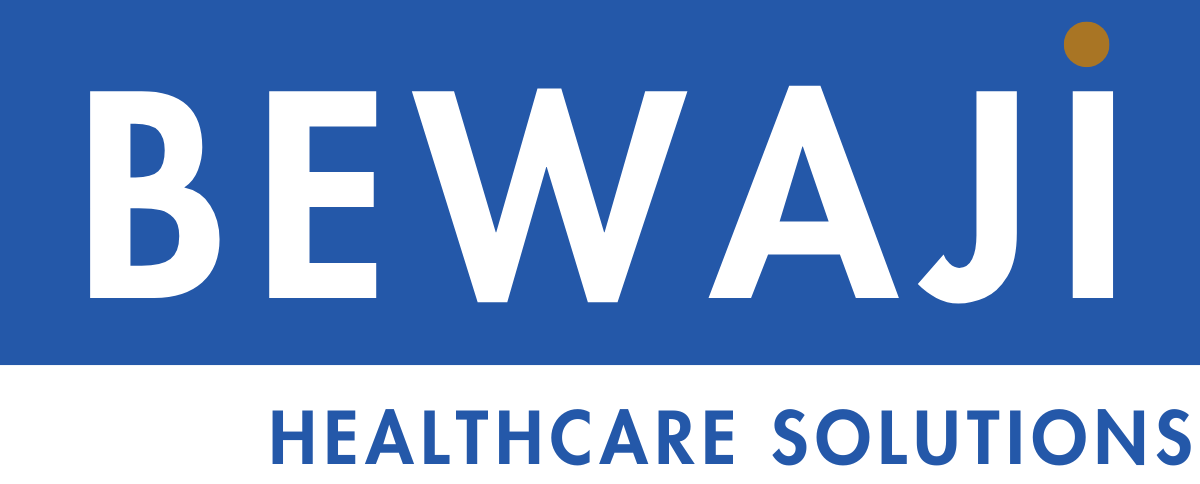Listen to the topic on Spotify:
Today’s global landscape of healthcare and business, brimming with cultural diversity and constant change, demands a leadership style that is both adaptive and profoundly insightful. Within this context, we explore the pivotal role of empowering leadership.
The challenges confronting today’s leaders in healthcare and business are multifaceted. Central among these is the issue of employee demotivation, a phenomenon that undermines the fabric of organizational effectiveness and employee satisfaction. This demotivation often stems from many sources – from cultural misunderstandings to a lack of acknowledgment – each contributing to a disengaged workforce.
This piece posits a thesis that resonates deeply with the demands of our time: empowering leadership, rooted in a nuanced understanding of individual and cultural dynamics, is not just facilitative but a crucial element in pursuing organizational success. Such leadership is characterized by its ability to identify and address factors that sap employee motivation, its proficiency in developing cultural intelligence, its skill in wielding effective questioning as a tool for engagement, and its embodiment of essential leadership competencies.
This discourse offers practical insights and strategies for healthcare managers and business owners. We delve into the factors that cause demotivation, explore the significance of cultural intelligence in leadership, examine the transformative power of effective questioning, and outline the essential competencies that define today’s leaders. This essay seeks to illuminate the pathways through which leaders can motivate their teams, foster inclusivity, and align their strategic vision with the overarching goals of their organizations, thus ensuring sustainable success.
It’s a universal truth that even the most dedicated employees can find their motivation waning, a tide that ebbs, leaving a sense of disconnection and unfulfillment. The causes, often as varied as the human experience itself, stem from a tapestry of personal, organizational, and cultural threads.
At the heart of this complex issue lies the challenge of autonomy. Picture the employee whose day-to-day experience is shackled by micromanagement, their every decision scrutinized, their every move monitored. Such an environment stifles creativity and initiative, replacing the vibrant colors of innovation with the monochrome shades of compliance. This lack of autonomy, akin to a bird caged, unable to spread its wings, leads inevitably to a decline in motivation, a dimming of the spark that once drove them to excel.
Contrast this with the soul-searching employee whose personal values align with the corporate ethos. Like a square peg in a round hole, they struggle to find their place, their sense of purpose diluted. This subtle yet profound misalignment eats away their motivation, leaving a void where passion once resided.
Then, there’s the unheralded employee, toiling away in the background, their contributions often overlooked, their efforts unseen. In a world that frequently equates loudness with worth, the quiet diligence of such individuals often goes unrecognized. Yet, these unsung heroes, the bedrock of any organization, can shine the brightest when acknowledged. The simple act of recognition, of seeing and valuing their contributions, can reignite the dwindling flame of motivation.
Addressing these demotivating factors requires a leadership style as varied and nuanced as the issues themselves. It calls for a bespoke approach, recognizing that each employee requires a tailored strategy with unique needs and aspirations. The cookie-cutter solutions of yesteryear, with their generic motivational techniques, fall short in this new era. Today’s leader must be an astute observer, a discerning listener, and a creative problem-solver, capable of crafting strategies that resonate on an individual level.
Empowering leadership, therefore, is not just about wielding authority; it’s about understanding the human heart and mind. It’s about nurturing an environment where autonomy is encouraged, values are aligned, and contributions are recognized. In this, the true essence of motivation lies not in external rewards but in the internal satisfaction of knowing one’s worth, of feeling seen, and of being an integral part of a greater whole.
Another key competence concept is cultural intelligence – critical as it is often overlooked. In an age where borders are more porous than ever, and workplaces are a mosaic of diverse cultures, navigating this complexity becomes a cornerstone of effective leadership.
The essence of cultural intelligence lies in understanding – a deep, empathetic awareness of the rich mix of human backgrounds that populate our modern workspaces. It’s about recognizing that each individual brings a unique cultural heritage, a set of norms, beliefs, and values as diverse as the world itself. This understanding is not merely academic; it is deeply human. It involves stepping into the shoes of others, seeing the world through their eyes, and appreciating the myriad ways our differences shape our perceptions and experiences.
Leadership, when imbued with cultural intelligence, transforms. It becomes more than the exercise of authority; it evolves into an act of harmonization, aligning a symphony of diverse voices into a cohesive melody. Such leaders are adept at adapting their styles, like skilled musicians tuning their instruments to different keys. They recognize that what motivates and inspires in one culture may not hold the same resonance in another. Their leadership style is fluid, changing in cadence and tone to match the cultural context in which they operate.
In the hands of a culturally intelligent leader, the workplace metamorphoses into an inclusive environment, a crucible where diverse perspectives are valued. Every voice, regardless of its cultural origin, is heard and respected here. It’s a place where the unique insights that arise from varied cultural viewpoints are seen as a treasure trove of ideas, driving innovation and creativity.
The role of cultural intelligence in leadership is akin to the role of the keystone in an arch; it holds everything together. Without it, the arch crumbles under the weight of misunderstanding and miscommunication. With it, the structure stands strong, supported by the strength of diversity and the mortar of mutual respect.
Thus, the call for today’s leaders is clear: to cultivate cultural intelligence as diligently as they would any other skill. In doing so, they become better leaders and champions of a world where diversity is celebrated, and everyone can find a place to thrive regardless of their cultural background.
Next, we look at the subtle yet profound art of effective questioning. In the complex interplay of leading diverse teams, where understanding and communication are paramount, the ability to ask the right questions becomes a tool of inestimable value.
The art of questioning in leadership is akin to the art of a master painter. Just as a painter uses different brushes and colors to bring a scene to life, a skilled leader uses various questions to illuminate the landscape of an employee’s mind. Open-ended questions, in particular, stand out in this toolkit. They are like broad strokes on a canvas, inviting expansive responses that reveal deeper layers of thoughts and feelings. In asking, “What are your thoughts on this project?” rather than “Do you agree with this approach?” a leader opens a door to dialogue, a pathway to understanding the intricate workings of an employee’s perspective.
This practice of inquiring, genuinely seeking to understand rather than to confirm preconceived notions, empowers employees in a way few other strategies can. It involves them in decision-making, giving them a sense of ownership and investment in the outcomes. Such engagement is the cornerstone of a motivated workforce, where each member feels valued and heard.
Effective questioning, however, is more than the mere act of asking. It is underpinned by trust and rapport built through active listening and empathetic engagement. When a leader asks a question and listens – truly listens – to the response, it sends a powerful message. It tells the employee that their opinions matter and that their leader is not merely fulfilling a managerial duty but is genuinely interested in what they have to say. When coupled with empathy, this act of listening bridges gaps of misunderstanding and forges connections of mutual respect.
Effective questioning is interwoven with the skills of listening and empathy. It is a practice that demands patience, openness, and a willingness to be surprised by the answers it elicits. Leaders who master this art gain deeper insights into their teams and foster an environment of collaborative problem-solving and innovation.
We now focus on the essential leadership competencies underpinning and enhancing all we have explored. These competencies, like the finely tuned instruments in an orchestra, bring harmony to the art of leadership, ensuring that the melody of employee motivation is rich and enduring.
At the forefront of these competencies is ethical and inspirational leadership. In a world rife with cynicism and mistrust, the value of integrity cannot be overstated. Leaders who demonstrate unwavering ethical standards become beacons of trustworthiness, their moral compass guiding their actions and those of their followers. Such leaders inspire through words and deeds; their commitment to doing what is right, even when difficult, sets a standard for all. They are like lighthouses in a tumultuous sea, offering direction and hope, inspiring their teams to strive for greater heights.
Emotional intelligence stands as another pillar of effective leadership. In the intricate dance of human interactions, the ability to perceive, understand, and respond to one’s own emotions and those of others is a skill of unparalleled importance. Leaders equipped with this emotional acumen are adept at navigating the complex dynamic landscapes of their teams. They can sense the undercurrents of discontent, recognize the signs of unspoken stress, and offer support where needed. Their empathetic approach fosters an environment where employees feel understood and valued, a fertile ground for motivation and engagement.
Finally, the balance between strategic vision and effective execution marks the hallmark of genuinely successful leadership. It is one thing to envision a future replete with success and innovation; it is another to chart the path to that future. Leaders who excel in this competency blend their aspirational goals with pragmatic strategies. They align their team’s objectives with the organization’s broader goals, ensuring that each step is towards collective success. They motivate their teams through a shared sense of purpose and steer the organization toward its strategic goals.
In essence, these competencies – ethical and inspirational leadership, emotional intelligence, and the harmonization of vision and execution – form the bedrock upon which effective leadership is built. They are the pillars that create and support a motivated, engaged, and high-performing team. Leaders who embody these competencies drive their organizations to success and leave an indelible mark on the lives of those they lead, shaping a legacy of inspiration, integrity, and impact.
Our discussion began by delving into the crucial task of identifying and addressing the factors that lead to employee demotivation, understanding that the key to unlocking potential often lies in recognizing the barriers that hinder it. We then discussed cultural intelligence, a vital competency in today’s globalized workspace, highlighting its role in fostering inclusive environments where diversity is acknowledged and celebrated.
The art of effective questioning emerged as a pivotal skill, one that encourages open dialogue and deepens our understanding of the myriad perspectives that enrich our workplaces. Finally, we underscored the essential leadership competencies – ethical leadership, emotional intelligence, and the seamless integration of strategic vision with effective execution – as the cornerstones upon which motivated and successful organizations are built.
For healthcare managers and business owners, the implications of these strategies are profound. By embracing these leadership approaches, they can cultivate workplaces where employee satisfaction and motivation soar, leading to enhanced performance and organizational success. The ripple effect of such leadership extends beyond the immediate team, influencing the broader corporate culture and setting a standard for excellence and empathy.
In conclusion, the resonance of empowering leadership in today’s complex and culturally varied workplace cannot be overstated. This leadership style echoes throughout healthcare facilities and business organizations, a melody of motivation, inclusivity, and success. As we lead, let us carry with us the understanding that leadership, at its very core, is about people – understanding them, inspiring them, and leading them toward a collective vision of excellence and fulfillment.

